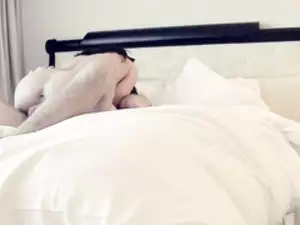War A Love Story Part 2
- 3 years ago
- 33
- 0

 2 years ago
2 years ago
So these won’t really be like stories. At least not yet since I don’t really know how to make up stuff like the writers on here. It will be more like a diary or a blog to tell you about the sex things and other things in my life. This first diary entry I’m gonna give you some background so you understand why I picked this guy for my first time. So this happened yesterday and I’m writing quite fast because I’m so excited so if I spell stuff wrong or whatever, hey it’s my first story ok? So...
First Time 4 years ago
4 years ago
Exiting the highway and dropping down into the trees, she thought of Little Red Riding Hood and smiled. The anticipation throbbed wickedly inside her. Turning right, onto the two-lane, she passed the new gas station. Her tongue flicked across her lips; she was once again headed towards her Grandmother’s house. A naughty Little Red Riding Hood, wanting the big, bad wolf to find her. She was even wearing a red blouse. The road curved away from her, disappearing in the green of the forest. She...
Spanking 2 years ago
2 years ago
I finally booked the rustic little cabin in the Gunflint wilderness in northern Minnesota. It had been seven years since I had taken a vacation, and I was looking forward to the peace and quiet of complete isolation. The only sounds I wanted to hear for the next week were the cries of the loons and the distant howls of the wolves that inhabited this piece of heaven. I packed a couple of knapsacks and loaded up my car. I headed north up I-35 out of Minneapolis to one of the last little pieces of...
Love Stories 2 years ago
2 years ago
WAR by Jason Argo "Will there be a war, Herr Strasser?" The room was in shadow, the electric lights had been dowsed and heavy drapes had been drawn across the windows to block out the early evening sunshine of midsummer. On one side of the room atop a small dais stood a slender young woman, her beautiful face framed by a long fall of blond hair. She was completely naked, her breasts swollen, her nipples tight with arousal. Facing forward, she supported...
 2 years ago
2 years ago
It was something of a surprise when I found out that Paul Dirk had been making love to my daughters. Both Susie and Becky were now in college and only came home during the holidays and the summer. So they must have used that time to have fun with Paul. I must admit I was jealous. I had not been well serviced by my husband, Cal, for years now. Oh we often went on cruises and such, but he always ended up playing poker and then getting drunk and collapsing in our room. I hardly ever got a really...
Seduction 4 years ago
4 years ago
Christmas parties.I hate them.At our office they are mandatory, which isn't very fair if you ask me. Why be forced into something you don't want to do just for the sake of "office relations"? If only the high-ups knew what kind of relations were going on, they might change their minds. When I take my boss' job, which I will one day, I will stop the parties being mandatory. They have this thing where they choose a male and female to be "sexy" Santa's. This year my friend Wendy, was chosen as the...
Office Sex 3 years ago
3 years ago
Ah, Melissa. That’s a name that brings back fond memories of a time of passion and illicit romance. Even now, I can taste the hint of cinnamon on her lips and sense the subtle fragrance of an obscure flower that was the essence of the perfume she wore.Melissa and her husband, a stoic and foolish man whose unpronounceable name I have chosen to forget, lived in the same apartment complex as I. Even so, she might never have come to my attention if not for the fact that we did our laundry at the...
Hardcore 2 years ago
2 years ago
I must have slept for fourteen hours that night. The week before was very tough and my schedule was completely out of whack. By the time Friday night rolled around all I wanted to do was sleep. It was 11:00 am Saturday morning by the time I woke. By then, I felt as fresh and rested as I had in weeks. It's amazing what a good night's sleep will do for a man.I rolled over onto my back, enjoying the morning sun that filtered through my blinds. I stretched out and before I consciously realized it,...
Masturbation 2 years ago
2 years ago
Laney Travers walked down the ill-lit corridor and paused outside the doorway to her virtue's doom. Apartment twenty-nine again. Heaven help this well-raised girl. Well, maybe not Heaven ... Mike's voice sounded in her head: “News – real news – is what someone doesn’t want you to know, Laney sweetheart. The rest is fuckin’ propaganda. Keep searchin’ for truth among the bullshit. Rigour, determination, guts – that’s the only kinda newspaperman to be. Or newspaperwoman. Remember that.” He’d...
Hardcore 4 years ago
4 years ago
“I’m Stacey, and I’m a sex addict.” I knew I wasn’t the only person in the room that was in denial over that statement even as it left my mouth. ‘Admit that you need help and recovery will come quicker and last longer’. I had to hold back my initial laughter as I’d read the mission statement that had been emblazoned on the front of our orientation binders at The Belleview Retreat for Sexual Health. My mind immediately substituted “cum” for “come” and… anyway, yeah I guess I was probably one of...
Hardcore 3 years ago
3 years ago
She was so tight she made my loins ache. I wanted inside of her. The slutty little thing wore a shiny lick of a dress that reminded me of the black paint on my favorite ride. Now I wanted to ride her ass just like I ride my bikes, with a lot of speed. No brakes would be needed for that piece of tail; she wasn’t after safety. I could tell by the way all five-foot-nothing of her prowled the bar floor in those spiked stilettos. There was nothing passive or tentative about her. She had game, but...
Quickie Sex 3 years ago
3 years ago
Zone Defense, written as Gavin E. BlackChapter OneNathan Kent wasn't thrilled with the idea of completing his final year of college at a completely different institution from where he'd started, but the opportunity to join one of the top varsity football teams had been too much of a temptation to pass up. The truth of the matter, Nathan was glad to have an excuse to move away. His last relationship had ended badly, and the thought of having to play a defensive position in conjunction with his...
Gay Male 4 years ago
4 years ago
My heart was pounding in a symphonic surge as I lingered in front of the hotel room door. I checked and rechecked the metal plate bolted to the rich, dark oak. Number 2412. Yes, this was definitely the right room. The hallway corridor was empty. The dimly lit sconces glowed invitingly along the richly textured walls. They had led the way from the elevator of the lushly swank boutique hotel, The Hazelton, just like beacon lights leading me towards the precipice of a decision I still wasn’t sure...
Reluctance 3 years ago
3 years ago
“I’m Brooklyn, and… whatever… I guess I’m a sex addict.” I glared at the group of pathetic faces in the circle surrounding me. This is so fucking lame. Why did I sign up for this? It was bad enough that I’d had to endure public humiliation when the scandal broke, but being away from the city in this touchy feely rehab centre set my nerves more on edge than they did to soothe them, which I’m sure was their original intention. From the moment I’d checked into The Belleview Retreat for Sexual...
Anal 3 years ago
3 years ago
The first shot struck Jennifer under the chin. That one came from Lawrence. She was still yelping when Trent’s delivery took her full in the face, filling her mouth and blinding her in an explosion of thick white. She spat and wiped her eyes clear, then pursued her boyfriend, scooping snow as she ran. Trent taunted as he fled, but stumbled knee-deep in a drift. “Bastard!” She laughed as she pelted him, then pushed him over while he was still off-balance. He pulled her with him and they rolled...
Group Sex 2 years ago
2 years ago
She needed to have her senses challenged, to feel nature close to her; she didn’t want to hug-a-tree, she wanted the trees to hug her. Feeling more at home sitting on the wooden staircase than anywhere else, she observed the door that lead out into the front of the property. She stared, admiring the beauty of the oak grain, before raising her head to look up to the small window above the door frame. Before she arrived at her new home in a new state with her family, watching wispy clouds drift...
Masturbation 4 years ago
4 years ago
I escaped my fucked-up life into late-night erotic fantasies for years as waves crashed onto the sand beneath my balcony. I frequented my favorite site and started writing stories after becoming enamored with an author. Her stories had dirty, rough stuff I loved but also sensual and tender in a way I tried to emulate but couldn't master. I fantasized she spent hours getting aroused reading my words as I did hers. When she joined a new site, I quickly followed, seizing an opportunity to become...
Straight Sex 2 years ago
2 years ago
“I’m Kylie, and I’m a sex addict.” I tried not to cry. It would have made things exponentially more embarrassing than just standing in front of the room telling a group of strangers that I was basically a sexual deviant. I bit down on my lower lip instead, producing just enough sharp discomfort to keep the girly tears back. I couldn’t believe I had really committed to this. Of course, I guess one could argue that I wasn’t very good with commitments, as it was. Ever since the depraved incident...
Group Sex 3 years ago
3 years ago
“You’re such a whore, Shelby! But that’s still fucking hot…” Chelsie said as I briefly mentioned one particular aspect of my vacation to the Cayman Islands. “How were they? Big? Muscular? Come on, Shelby, details!” “Geez, let’s not be too demanding here. It was just sex on the beach with three incredibly hot guys! After all, I was on vacation…” I just stared at Chelsie, hoping she wouldn’t judge me for spilling the contents of my wild and dirty vacation. “Oh, please do tell! And you couldn’t...
Group Sex 4 years ago
4 years ago
Chelsea was late, the victim of a failed alarm clock and cab shortage. She silently cursed her tight skirt and heels as she flew through the lobby, skidding across the polished marble floor just in time to catch the elevator. Breathless, she jumped in, glanced at her watch, and exhaled in relief. The button to the fifth floor was already glowing, pressed by the elevator’s only other occupant. When she turned to say good morning, the words stuck in her throat. It was Liam, the gorgeous new...
Group Sex 2 years ago
2 years ago
For the first few weeks working at Joelle’s, my feet never really touched the floor. This was everything I had dreamed of, and more. In case you don’t know about her - though I’d be curious if you didn’t - Joelle’s the woman who turned makeup into a true art. Where others only “applied” lipstick, rouge and eye shadow, she painted with an artist’s skill and turned the plainest women into goddesses, into true artwork. Nobody knew her surname, and nobody needed to. All the big stars flocked to her...
Spanking 4 years ago
4 years ago
Aidan Black stared at the online text that flashed up onto the screen. ‘I luv ur stories!’ He yawned, and took another sip of his Jack Daniels. He quickly typed a reply and then leaned back in his chair. ‘What do you like about them?’ He smiled at the long pause. All these fans are the same, he thought to himself. Innocent young girls that dream of being treated like dirty sluts and too afraid to tell their college boyfriends that doggy-style after a long alcohol-fused pub crawl just wasn’t...
Reluctance 4 years ago
4 years ago
It had been five years since my wife died. I was stuck in a rut. It was as if my life had stalled the day Gina passed away. I was as emotionally healed as I would ever be, yet I lacked the will to go out and start anew. I worked, I came home. I slept, and then I headed back to work again the very next day. My life became a cycle. Rinse and repeat, ad infinitum.Maybe that’s why I allowed Christie to get so close to me. I told myself I just needed the help, but had I thought it through, I would...
Taboo 3 years ago
3 years ago
Kailee knew she shouldn’t be here. He warned her of what would happen if she came into his space alone again. Shane, her father in-law was a good man, but he liked things his way. He wanted everything run his way. When Kailee and his son had to move back in with him and his wife while their place was being finished, the rules had been simple. Stay out of his office. Last week Kailee had been wandering around the large house, bored and looking for something to do. She walked down the hall and...
Taboo 4 years ago
4 years ago
I watched his plane lift off and disappear into the eastern sky. As I slowly walked across the airport terminal to the parking lot, I tried to compose myself as I wiped the last few tears from my cheeks. I could still feel his lips on my lips and the lingering scent of his shaving soap was still with me, but both sensations were rapidly vanishing. As I climbed into the car, I leaned back one last time saying good-bye to the man I loved. The feeling of the strength of his arms around me in our...
Voyeur 3 years ago
3 years ago
Anna had only been living with Lincoln for three months, one week and five days when he walked in on her masturbating. He’d originally left with an overnight bag swinging from his clenched fist and a casual comment thrown over his shoulder to let her know he'd be spending the weekend at a friend’s place. Ten minutes after he'd walked out the door she'd stripped down to her tank top and panties, feeling the urgent need to relieve some of the tension that being around him regularly caused. In...
Straight Sex 3 years ago
3 years ago
Damon: I’ll bet you’ll get up to some trouble in Cabo. I smirked at the text that flashed up on our chat-log from the computer screen. He was always teasing me. Ashleigh: No trouble. At least not the good kind of trouble. I’m going with my boyfriend don’t forget. There was a pause, and while I anticipated his next words, I took a sip of the vodka soda I was prone to drinking while I spent my online hours chatting with my favorite virtual stranger, DamonX. I leaned back in my computer chair and...
Taboo 2 years ago
2 years ago
Dedication: This story is just a bit of fun and is respectfully dedicated to all the tireless story checkers on Lush, whose hard work makes this site possible and who have to put with rubbish like this every day. Also, thanks must go to Fugly, whose story "Bag of Lush All Sorts" was the inspiration for this piece.I was in only my second month at Global Biofuels and still finding my way around the organisation. As the head of procurement in a modern, forward-thinking, ethical company, I had to...
Taboo 4 years ago
4 years ago
Robyn thought about sex a lot. She craved sex. Robyn wanted to feel a man’s strong masculine hands all over her naked body, to hear him whisper dirty words in her ear and make her pussy sopping wet.She imagined his hands pulling her hair back and his tongue in her ear as his thick hard cock penetrated her wet cunt. She wanted to feel his bulging biceps caress her sides and the feel of his sweat mixing with hers on their warm wet bodies.Just then Robyn looked up and saw bright red brake lights...
MILF 4 years ago
4 years ago
Anal “You like that, don’t ya Fugs, hey?” asked Eric. “You like a big cock going deep in that sweet tight little puckered up ass?” “You know I do, Babe,” I said between thrusts. “But, do you want to talk or fuck?” “Oh, let’s talk please,” Eric smirked. “How was your day, sweetheart?” “Well asshole, it was going fine... until you opened your mouth. So, stop being a smart ass, shut up and”... BDSM “Take it like the bitch you are,” I said, as I rammed my condom covered rubber opaque cock...
Straight Sex 2 years ago
2 years ago
(episode 31) Prelude to the Party: After finding out about Mary Beth’s kinky tryst at the lesbian club and also allowing myself to participate in Jennifer’s twisted drug-fueled gang bang, I found myself in a very strange mood. In fact it was like being apathetic, ashamed, strangely aroused and creeped out all at once. Despite all the bizarre events of the past weekend, I thought I’d try to maintain my relationship with Mary Beth. I figured my participation in Jennifer’s twisted orgy and Mary...
College Sex 4 years ago
4 years ago
Milena's story My name is Milena and I work in a well-known chain of Opticians on the high street. When the manageress of our store suggested that we have a ‘wear what you want day’ I was excited. I’ve always been one for fancy dress. Then she added one or two caveats. We must be decent and not wear anything that brings the business into disrepute. Knowing me, that was a tall ask, but hey ho! She said it would be good for morale and create a talking point among customers and attract passing...
Quickie Sex 5 years ago
5 years ago
Mike, Enough endless talking. You once said that it is not bragging if one can back up one’s words with action, and now it has come time to back up your words, mon petit. Please see attached; everything has been arranged. Yours, Jen. No further explanation.A ‘click,’ a mental turn as my brain processed those three short sentences, and time quite changed, my vision dimming as I read the attachment. It read as follows:Dear Mr. Stone,Thank you for choosing Alaska Airlines. Please make note...
Anal 2 years ago
2 years ago
This story only available on Lush Stories. If you are reading it elsewhere, it has been stolen.I’ve always been a bit of a loner. Even in my daydreams, which largely featured a handsome prince who saw me completely differently to how I really am, more time was spent waiting and dreaming of him in those solitary imaginings than I did actually with him in them. I believe that was prophetic, leading into (or perhaps from?) pathetic. When it comes to sex, with two startling exceptions, all of that...
First Time 2 years ago
2 years ago
“Hi, I’m Rachel, and yeah… I guess you can call me a sex addict,” I giggled as I looked at the expectant faces surrounding me. I thought about that statement for a minute. Of course, I’d never called myself a sex addict out loud, but the idea of it sounded almost kind of sexy. Of course I knew I was supposed to be all serious standing there in the classroom at The Belleview Retreat for Sexual Health. But really, how can you find the seriousness of group therapy at all? They were a miscellaneous...
Taboo 2 years ago
2 years ago
‘To pluck a beautiful flower from the desert is an unpardonable sin.’ – Man Of Mountain, Shoshone Medicine Man My best friend Karla, lived with her dad, Hank, in a trailer until she was eighteen. Then she fixed up an empty trailer, one of those old chrome things with the rounded corners, and moved into it by herself. She used to get spooked in that trailer all by herself. She would call me on the phone and say, “Jan, come over and spend the night. You know I’ve got NetFlix; we’ll rent something...
Supernatural 4 years ago
4 years ago
I love sex. I suppose that doesn't make me unusual. Most women do. My urge to share my desires online isn't so common. Maybe I love the attention, and maybe by sharing, part of me hopes others will share their own desires with me.Such things are never easy to speak of. Maybe it's easier for guys, but I don't know if that's true. I do know some girls find it very difficult to talk about their intimate secrets. I think that's a shame. How can we hope to achieve a satisfying sex life if we are too...
Masturbation 4 years ago
4 years ago
Something powerful stirred inside me when I heard the groan of carnal satisfaction over the gentle waves. That something had been trying to return for a while, nudged toward life with every sultry glance and beautiful body that I encountered or imagined. But when I turned the corner that night and saw her on his lap, rolling her hips, unmistakeably fucking, that was when it officially re-awakened. It had been asleep for literally years; when I moved to Jamaica, it truly slept in peace. It was a...
Group Sex 2 years ago
2 years ago
Saturday evening was delightful, the club was jumping, and there lots and lots of pretty people around to enjoy. A tall brunette was giving me the eye, and the way she was looking at me told me we were on the same wavelength. She finally walked up to me and spoke."Can I buy you a drink, pretty lady?"Silly girl, of COURSE you can!"I'd love that, and I love Cosmos. My name's Elizabeth, and you are?"She smiled and it was the kind of smile I liked."I'm Kendra, and I'm impressed, you're very...
Lesbian 3 years ago
3 years ago
I sighed, hit “send” on my email, and wondered if it was time for another trip across the road to Costa. The office was supposed to be air-conditioned, but it didn’t seem to be working today, just when it was most needed. It’s not that I was complaining about the hot weather, it’s just that I’d much rather be out sun-bathing than stuck at my computer all day.Suddenly I heard a voice behind me.“I don’t suppose you’ve got any Ibuprofen, Annie. This heat’s given me a splitting headache, and I must...
Office Sex 4 years ago
4 years ago
If I hurried, I had time to drive home, take a quick shower, get dressed and still not be late for my dinner date with Jason. He was working late, so he would be meeting me at the restaurant. Since I knew he wouldn’t be stopping home first, it gave me time to get my naughty surprise ready for him. Hopping out of the shower, I quickly dried off, rubbed on some lotion and made sure I was smooth all over. I put on a lace black bra and garter, slid on some black thigh highs and attached them to the...
Toys 2 years ago
2 years ago
My boyfriend and I were cuddled together in my bed enjoying the post coital bliss that followed a nice, but not spectacular fuck. I was gently fondling his rapidly deflating penis as he softly massaged my labia - both slippery with various sexual fluids. Devin broke the moment asking, “On a scale of one to ten, how would you rate this?” “Sssh,” I sighed, “Let's just enjoy this.” “Seriously,” he said, “One to ten, with a ten being mind blowing.” “Devin, let it be,” I protested, “Just be quiet.”...
Group Sex 3 years ago
3 years ago
Pamela had already made the picnic and packed it into a wicker basket when the boys arrived. She’d cleaned the kitchen as well, been a thorough little domestic goddess with her mom and dad away for the week. And finally she had changed from jogging pants and T-shirt into her costume. Nothing outlandish, just a simple white-muslin dress and sandals, and then to the garden to pluck daisies and buttercups and ring them into a crown and a necklace. She stood before her bedroom mirror adjusting the...
Group Sex 2 years ago
2 years ago
On a warm, quiet night, Lauren lay in bed listening, through her open bedroom window, to the deep moans of an unknown woman that was repeatedly brought near climax, only to be edged back from her orgasmic bliss. Lauren’s husband, dead to the world in a deep sleep, lay next to her, oblivious of the other woman but thirty feet outside their window, being ravaged by Jason, who had been their best man just three years ago.Lauren’s fingers were massaging her rock hard nipples as she imagined Jason’s...
Cheating 2 years ago
2 years ago
Jack’s Story Despite all my reservations, I had agreed to house sit my parent’s place for a month this summer while they were on vacation in Europe. My parents lived in the suburbs and were far from my usual stomping grounds. Literally there was nothing, but nothing, around unless your amusement was the local shopping mall.“Jack,” my father had said, “your mother and I would feel so much more comfortable if you were here. There has been this wave of robberies in this area occurring when people...
MILF 4 years ago
4 years ago
Seven o’clock, the black numbers showed clearly against the silver LED background. Tanner noted the time with a sense of detachment, not concerned or hurried, but with an awareness that his guest would soon arrive. A geisha, Tanner thought while gazing out through the expanse of windows in his penthouse apartment.Tanner rolled the word through his mind again, sampling its meaning as if he could taste its implications. Would she offer sex? Probably, but there was no guarantee. From what little...
Straight Sex 2 years ago
2 years ago
The city is lonely and my bedside table is in disarray. Cherry cola fizzes in a champagne flute. A ragged copy of Albert Camus’ The Fall holds a position of importance in place of a Bible. It’s bookmarked at Jean-Baptiste’s recollection of that warm autumn night by the River Seine. I like to reread that passage when I can’t sleep. Next to it, there’s a half-smoked joint in a vintage glass ashtray that I stole from an ex-lover’s apartment. I can’t remember his name, but there’s something...
Hardcore 2 years ago
2 years ago
It was just another normal day in the cheese aisle when I first noticed her. Customers came and went as normal buying all manner of chilled foods. The queue at the deli ebbed and flowed as people clamoured for cheese, cold meats and fresh pizzas. It was my job to manage the staff and ensure all the shelves were fully stocked. In hindsight I didn't pay too much attention the first time, but after four days of seeing her visit my aisles I knew every curve of her body! On day one she bought milk...
Lesbian 3 years ago
3 years ago
As the door closed behind me I looked at my watch. One a.m. I should be home in less than half an hour. It smelled refreshing and invigorating outside. As I walked to my car the last few drops of his semen ran down my leg. My bra and panties were in my purse. I was dressed in my normal work attire, not having showered after. I was sure I was ripe with the fresh sent of rigorous sex. When I arrived home intended to drop my clothes, get into bed, odorous as I was, and shower in the morning.I...
Cuckold 3 years ago
3 years ago
(episode 30) My infatuation with Mary Beth grew during January of 2008. She was damned sexy and really good looking, plus she had one of planet Earth’s best camel toes. Another great thing about Mary Beth was that she was almost as daring and insatiable as Jennifer. However, as February came along, a few problems did arise. Mary Beth was becoming more and more possessive and controlling, and she would get really pissed off about me going over to Brittany and Jennifer’s apartment to study. ...
College Sex 4 years ago
4 years ago
Gav slipped off his leather jacket and hung it over the back of his chair. It was Monday again and he needed to get to grips with the project that he was overseeing. He was head of IT Infrastructure at a busy lingerie firm. Lucy’s Underwear Show House had a turnover of £120 million and was one of the fastest growing businesses in the sector. In spite of the recession the company had made inroads into the ‘bedroom’ market capitalizing on the gap left by a recently dissolved name. Gav was a...
Taboo 3 years ago
3 years ago
Seattle, Winter ‘07 Her name was Lucy, or at least that’s the name she used, and she was a junkie. I didn’t need to see the track marks to know. In my line of work, I’d seen enough addicts to ID them quickly. She said she was 25, another lie. Closer to 20 would be my guess. That’s the thing about junkies. Lying comes naturally. It’s second nature. “I want to get clean.” See? Translation. I’d rather go to rehab then the slammer. Eventually, I got the truth out of her, though. Surprisingly,...
Seduction 2 years ago
2 years ago
Ida Hoe was waiting nervously back stage as her arch rival, Holly Keyhole, performed on stage riding Hoss Bigg cowgirl style on a trampoline. She could hear the audience shouting in delight. The raucous cheers were almost deafening.Ida was horrified that Holly might give an unsurmountable performance. Ida barely trailed her for first place in this grand finale episode of Miss American Pornstar. Winning the title of the first Miss American Pornstar would not only make her the newest rage in the...
Group Sex 2 years ago
2 years ago
Late night. Lights glisten on the surface of the road where it rained not long before. I’m about to put my foot down on leaving the village when I catch sight of her. I bring the car to a halt, watching in the mirror as the rear lights redden the black nylon on her legs. Her skirt is short, jacket only waist-length. High heels. Something’s odd about this. You don’t really see hitch-hikers anymore, certainly not ones that look like her. I press the button, letting the window slide down. She...
Reluctance 4 years ago
4 years ago
I was only nineteen and my world was over! One little clerical error and I was no longer eligible for the student loan I needed to get me through my next semester. I didn’t even have family that could help me. My mother was a waitress living paycheck to paycheck, and my father died when I was six. I had been in a daze of disbelief when I left the college’s office, where Mrs. Banks had broken the bad news. I had known the moment I walked in and saw that she was smiling at me with a look of...
Taboo 3 years ago
3 years ago
Everyone says that your high school years are the best years of your life. For me, that’s only half true. High school sucked on so many levels. People either loved you, or they hated you, usually for the most pathetic reasons that most often came from a spark of jealousy, therefore causing rumours to spread. There was the fear of busting your ass; only to walk away with a mark that would honestly get you nowhere in life, and finally, teacher’s found any excuse to be on your ass. For me, this...
Taboo 3 years ago
3 years ago
1976Logan Lee Beauregard drove his sporty, little green, convertible MGB onto Interstate 85 West, just north of Columbus, Georgia. The top was down on the little convertible sports car as he felt the wind blowing freely through his long hair. He was hyped with eager anticipation about the mischievous adventures ahead of him. He sat low in the seat, his left arm resting on the top edge of the door, while his left hand rode the wind. His right hand firmly gripped the steering wheel as he sang...
Interracial 3 years ago
3 years ago
1 Week Before the Masquerade"That can't be your best line. What is it really?" Hector asked his new recruiting partner."It is, I swear. Women love hearing things like that. Some of them laugh, but they still like it," Jonas answered, while parking their black SUV."Whatever, man," Hector chuckled and continued. "I wouldn't tell you what my best line is either... But it's not even about the lines with me anyway."Both men flipped the SUV's sun visors down, slid the mirrors open and made sure...
Reluctance